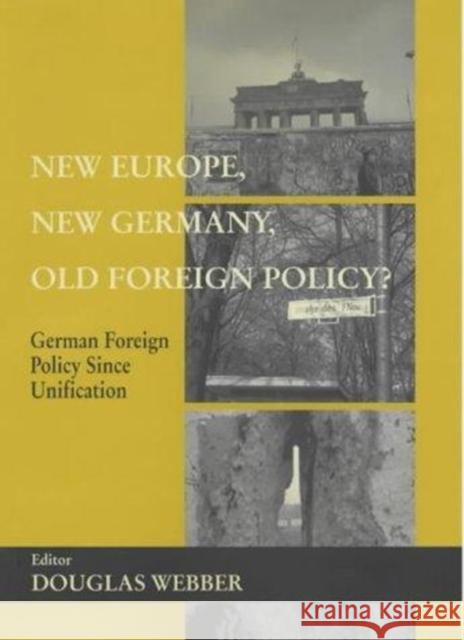New Europe, New Germany, Old Foreign Policy?: German Foreign Policy Since Unification » książka
New Europe, New Germany, Old Foreign Policy?: German Foreign Policy Since Unification
ISBN-13: 9780714651729 / Angielski / Twarda / 2001 / 232 str.
New Europe, New Germany, Old Foreign Policy?: German Foreign Policy Since Unification
ISBN-13: 9780714651729 / Angielski / Twarda / 2001 / 232 str.
(netto: 886,26 VAT: 5%)
Najniższa cena z 30 dni: 906,73
ok. 22 dni roboczych.
Darmowa dostawa!
When Germany was unified and the Cold War in Europe ended in 1990, there were numerous predictions that the new Germany would pursue a quite different foreign policy to that which was practised in the old Federal Republic. The new Germany would be less inhibited in the exercise of power and pursuit of its putative national interests, less inclined to support further European integration and less multilateralist. Germany, in short, would become more like a normal Great Power. The contributions to this volume, from scholars and analyses of German foreign policy in Germany, the USA, France, Britain, Poland and Belgium, analyze how and the extent to which German foreign and European policy has changed since German unification. In general, they find that there is greater continuity than change in post-unification German policy. In particular, German foreign policy has retained its strong multilateral orientation - a commitment to developing and preserving strong regional and international organizations and pursuing German interests in and through them.











